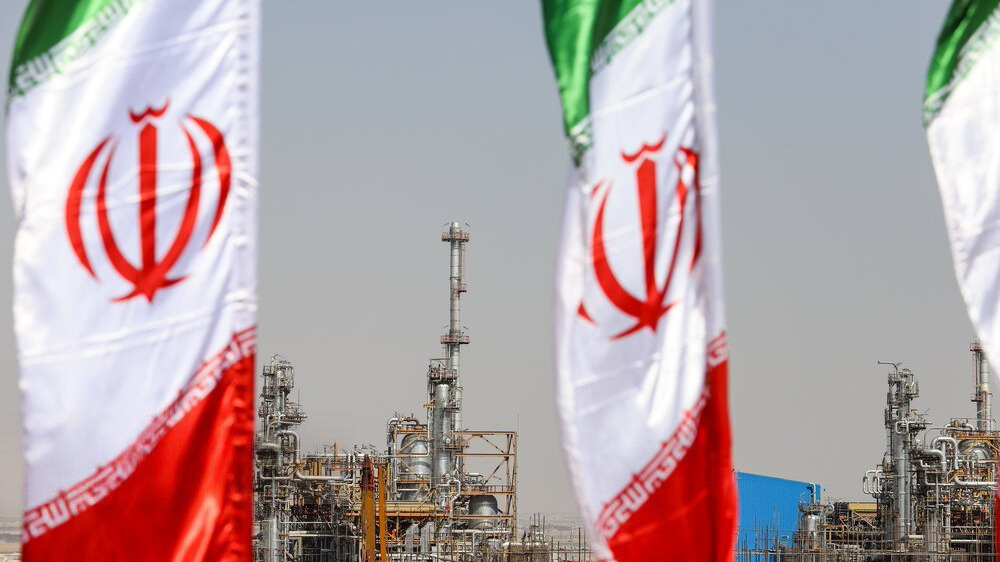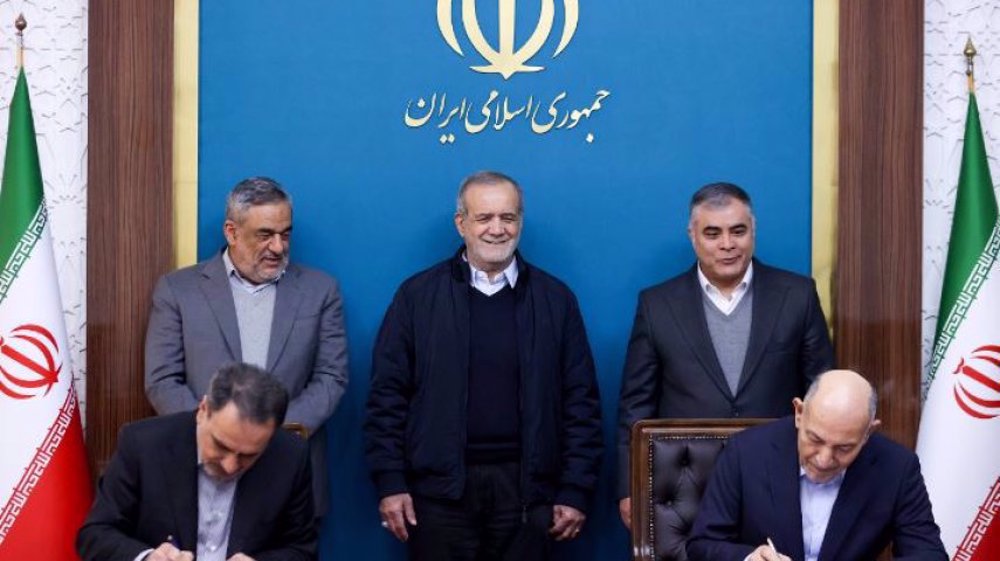FM: Iran oil clients to find ways of resisting US sanctions
Iran’s Foreign Minister Mohammad Javad Zarif says the US decision to end sanctions waivers on imports of Iranian oil has angered Washington's allies, noting that they will find ways to resist the measures.
"People are not happy. China is not happy, Turkey is not happy, Russia is not happy. France is not happy. US allies are not happy that this is happening and they say that they will find ways of resisting it," Zarif told Fox News on Sunday.
"How they will do it, it's up to them, and it's up to them looking at their own future, if they want to have their lives ruled by the United States," he added.
President Donald Trump withdrew the US in May 2018 from a multilateral nuclear accord, officially known as the Joint Comprehensive Plan of Action (JCPOA), which was reached between Iran and six world powers in 2015. Afterwards, Washington reimposed unilateral sanctions on Iran that had been lifted under the deal.
Last November, the US enforced sanctions targeting the Islamic Republic’s banking and energy sector. However, it granted waivers to eight major importers of Iran’s oil, including China, India, Japan, South Korea, Taiwan, Turkey, Italy and Greece, fearing market instability.
Last week, Trump decided not to renew the waivers when they expire in early May.
Zarif called the move "coercion, pure and simple."
The American business magazine, Forbes, quoted Athens-based oil analyst Theophanis Matsopoulos as saying that the US move may inflict big losses on China as it would push crude prices up.
“The USA is declaring trading war against major economic entities like China and EU,” he said.
The US action “will boost the crude price even higher since approximately two million barrels will be taken off the market on a daily basis. This will accelerate inflation of the Chinese economy and will push it towards an even sharper slowdown,” Matsopoulos added.
Economists also warned that rising oil prices sparked by Trump’s decision to scrap the waivers could derail a recovery in global growth next year.
According to an analysis by Oxford Economics, the US move could push crude to $100 per barrel by the end of 2019 which means global GDP growth would slow to 2.6 percent next year and inflation increase to 4 percent.
“We see increased risks of significantly higher oil prices,” a note written by Oxford economists John Payne and Gabriel Sterne reads.
“In the short-run, it is likely the supply impact will be offset by higher production elsewhere, but the market is tightening and all it would take is one more shock to supply and oil could reach $100,” they added
Financial news and information provider Bloomberg said Ankara has joined a group of nations determined to keep buying oil from Iran and is working on a mechanism to avoid US sanctions.
The Turkish and Iranian trade ministries are trying to keep the flow of goods between the two countries.
Turkey is also engaged in talks with the US over the sanctions on Iranian oil, Foreign Ministry spokesman Hami Aksoy said in Ankara.
Zarif noted that the US intends to make life hard for the Iranian people so that they will "take action" against the Tehran government.
"They are wrong in their analysis. They are wrong in their hope," Zarif said, stressing that the people of Iran will instead resist such pressure.
Elsewhere in his remarks, Zarif said that US regional allies, including Saudi Arabia, are pushing Washington towards war with Iran.
"They have all shown an interest in dragging the United States into a conflict," the top diplomat said.
FM Araghchi departs Muscat for Doha following nuclear talks with US
Israeli keeps killing more Palestinian civilians in Gaza amid relentless ceasefire violations
Aliyev: Azerbaijani territory will not be used for threats against Iran
Turkey arrests two on charges of spying for Israeli regime
Iran FM declares ‘good start’ as US–Iran talks conclude in Muscat
Iran strongly condemns 'terrorist' mosque blast in Islamabad
Iran enters talks backed by national power, popular support: MP
France, UK involved in assassination of Muammar Gaddafi's son: Reports

















 This makes it easy to access the Press TV website
This makes it easy to access the Press TV website